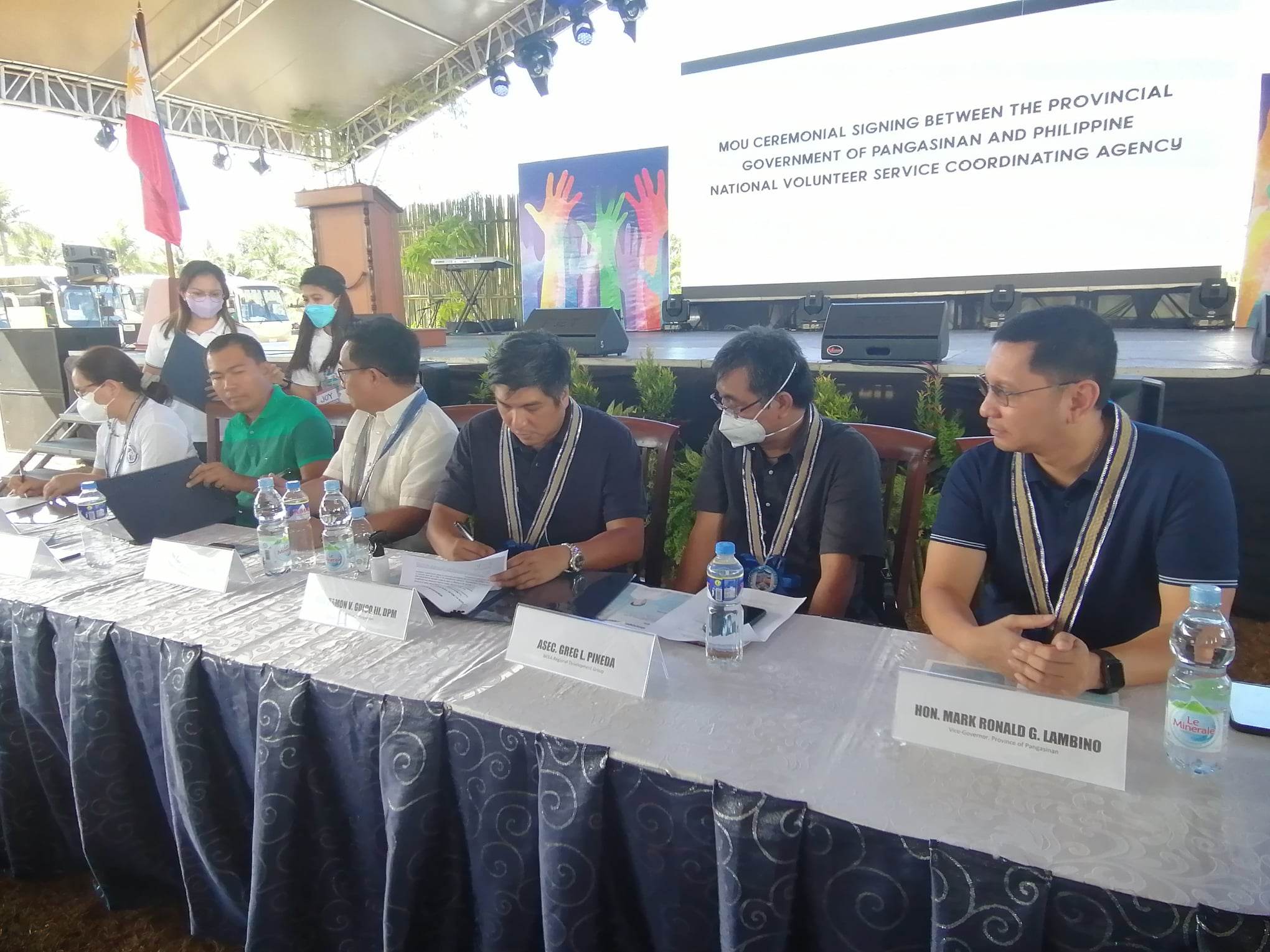
Pangasinan officials sign a memorandum of understanding with representatives of the Philippine National Volunteer Service Coordinating Agency for the establishment of Pangasinan Volunteerism Center in Lingayen town on Thursday, December 1. (Photo by Yolanda Sotelo)
LINGAYEN, Pangasinan – International volunteer organizations, such as the United States Peace Corps and France-Volontaires, joined local officials for the National Volunteer Month kickoff ceremony on Thursday (Dec. 1) at the beachfront in this capital town.
The ceremony, which opened with a fun run, was highlighted by the signing of a memorandum of understanding between the Pangasinan provincial government and the Philippine National Volunteer Service Coordinating Agency for the establishment of the Pangasinan Volunteerism Center.
According to the officials, the center will serve as a venue for the coordination of volunteer groups and training of front-line volunteers.
Participants in the ceremony also signed a manifesto supporting the institutionalization of volunteerism as a development strategy.
Assistant Secretary Greg Pineda of the National Economic and Development Authority (NEDA) said, “Participating in selfless acts and activities for the benefit of others is not the entirety of volunteering,” adding that it must leave a significant impact on society.
He affirmed that the participation of citizens is a crucial element of good governance, and that the greater the participation of the people, the better the governance.
Citing the Volunteers 2022 state of the world report, Pineda said 862,000 people ages 15 and up volunteer on a monthly basis.
“People all over the world engage in volunteer work for different causes like alleviating poverty, ensuring access to clean water and adequate sanitation, and mitigating the effects of climate change,” he said.
Pangasinan Gov. Ramon Guico III said Pangasinan has committed to being a part of the NEDA’s volunteerism program and that the provincial government has established the Pangasinan Volunteerism Center.
Last October, the Sangguniang Panlalawigan, headed by Vice Governor Mark Lambino, passed Ordinance 283-2022, adopting and implementing Republic Act 9418 or the Volunteer Act of 2007, to be known as the “Pangasinan Volunteerism Act.”
Guico said volunteerism is now the biggest movement of the provincial government, as it “can create solutions and respond to (challenges).”
“One person cannot do it alone. We need people to contribute to nationhood. They have fresh ideas, and together we can create solutions,” he said.
Guico cited the experiences of Japan and Korea as examples of how volunteerism works, saying the two countries were devastated by World War 2, but are now progressive because of the volunteerism of their residents.
He added that Filipinos are also inclined to volunteer during calamities.
“When a province is hit by an earthquake or typhoon, other provinces immediately respond and volunteer to help,” Guico noted.
He added: “The bedrock of social and corporate functions of local government units is volunteerism, which is one of the indicators of development and progress.”